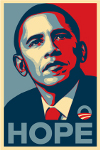www.dreamfish.com
In a recent conversation with Nnenna Nwakanma, one of Africa’s leading open source experts and community lead for Dreamfish, Nnenna shared her experiences, passion and ideas on this exciting on-line community. In her own words, Dreamfish is an open and friendly community which balances software development with human interaction and best of all converts project work into jobs and real income for its members. Here is what Nnenna had to say.
Q. Tell us about your involvement with the African open source community and your experience in growing the local ecosystem.
Nnenna: My passion for openness, I was born with! So my engagement with open source is natural. In 2002, we started the Open Source Task Force for Africa. In less than 100 months, open source in Africa has grown far more than we had initially expected. I have seen the rapid growth from the Task Force to the Free Software and Open Source Foundation for Africa (FOSSFA). The community has grown and is no longer spreading by additions but by multiplication. I have learnt that hard work, dedication and good leadership are key to growing any ecosystem.
Q. Tell us more about Dreamfish. How does its mission of building community, using open source and creating jobs resound with local communities.
Nnenna: The Dreamfish story is a unique one. The work cooperative is built on the sheer will of its members. People who rise above their difficulties and challenges and with the help of one another, achieve ideals that even beat their dreams. People who are discovering how their work matters by contributing, who are open and collaborative on ideas, projects, dreams and ambitions. You need to read it here.
I am yet to see someone who is not interested in Dreamfish! Dreamfish is more than creating jobs. It is about building community, communication, friendship, continental ties, global knowledge base, experience sharing and life-long learning. Dreamfish members are being coached in project management, software development, leadership skills, personal management and a whole lot of other skills are monetized, within and outside the Dreamfish platform. Every member who joins gets a friend in not more than 24 hours. Dreamfish is the one place where, every time you sign in to chat, you will find a community team member there to open the door for you. Dreamfish is office, it is work, it is friendship, it is family, it is a life-long school. It accepts our present and inspires our future. Dreamfish is work for all in us that is human. Here is the community’s Humanifesto.
Q. How did you get involved with Dreamfish and how do you plan to grow its community further.
Nnenna: I am a community fish. I was looking for a community that balances software development with human interaction. I was also looking for something that has been missing for some time for me – an interface where an online community translates into project and cash for its members. I also was looking for doing lots more and traveling less. Dreamfish gave me the answers I needed – Community, Collaboration, Global Reach, Learning Opportunity, Humanifesto, and my personal dreams.
As Community Lead, I am working with the wonderful Community Team at Dreamfish. Our objectives now are to build capacity. We expect hundreds of thousands of people in no time. So, now, we want builders and leaders in enabling new open source projects to get started in empowering and human environment. We are expanding our successful Fellows Program to experienced software technologists and designers, who want to mentor open sour projects in Dreamfish and build Dreamfish. Dreamfish is recruiting developers who want to further our mission and teach others to fish.
Q. What is your message to the global community. Why would an Indian developer, a Malaysian student or a Brazilian professional join Dreamfish.
Nnenna: All three can be hired, all three are welcome to hire. But beyond work… you can actually find true friends, share experience and make your dreams come true. When we remove the ‘national’ tag, what we get is students who have learning opportunities, developers who can have enough code-writing to keep their minds challenged on a permanent basis, the professional who can meet and collaborate with others on his and their projects.
Here is what you need to do.
- Visit Dreamfish and sign up!
- Read about people’s experiences and success stories.
- Hang out on chat.
- Join a group, a project or a service team.
- For developers like you, head straight to the Dreamfish Network.
Let me also use this opportunity to invite you to our Global Meetups on Eventbrite. The next meetup is scheduled for July 7, 2010 3PM GMT. We will be covering a very important topic – Communicating Across Cultures. Join in at http://global-meetup-dreamfish.eventbrite.com/.
Q: How does one join Dreamfish? Do they need to lurk on a mailing list or can they participate right from the start?
Nnenna: That is the interesting part of Dreamfish. You can use Dreamfish for exactly what you want and say ‘no, thank you’ to what you don’t want. You don’t even need to join any mailing list. Feel free to sign up, walk over the chat, create a project, join a project, take a bus tour, make friends.. and if there is something you don’t like about any thing.. well you just change it! Everyone is a leader in Dreamfish. Contributors are all equal owners of the cooperative.
When you arrive, we will be there to open the door, welcome you and support your dreams. That is why we call it Dreamfish!
Thanks, Nnenna. Wish you lots of success. See you on Dreamfish.
